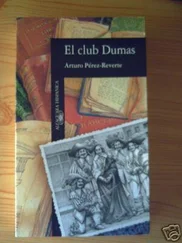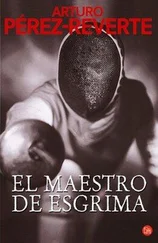When all the world admired his purity,
But in Spain, he spent both substance and security
And, losing life and interest, died a Genoan.
But anyone who claims to be his kinsman,
Howe’er sour-faced, becomes as sweet as honey,
For he remains a powerful gentleman,
Does our Sir Money.
The umbilical cord that kept our poor—and paradoxically rich—Spain breathing was the treasure fleet, which sailed the seas as much at risk from hurricanes as from pirates. This was why its arrival in Seville provoked indescribable celebration, for as well as the gold and silver destined for the king and for certain private individuals, it brought with it, too, cochineal, indigo, logwood, brazil-wood, wool, cotton, hides, sugar, tobacco, and spices, not forgetting chili, ginger, and Chinese silk brought from the Philippines via Acapulco. To this end our galleons sailed in convoy from New Spain and Tierra Firme as far as Cuba, where they formed one gigantic fleet. And it has to be said that during all that time, despite deprivation, disaster, and difficulty, the Spanish sailors carried out their work with great pride. Even at the very worst moments—when, for example, the Dutch captured an entire fleet—our ships continued to cross the sea at the cost of great effort and sacrifice, and except on certain unfortunate occasions, always managed to keep at bay the threat from the French, Dutch, and English pirates, in a struggle in which Spain fought alone against those three powerful nations, all set on having a share of the spoils.
“Not many bluebottles about,” commented Alatriste laconically.
This was true. The fleet was about to arrive, the king in person was honoring Seville with his presence, religious ceremonies and public celebrations were being organized, and yet there was hardly a catchpole or a constable to be seen in the streets. The few we passed were in groups, armed to the teeth, with more steel on them than a Basque foundry, and fearful even of their own shadow.
“There was an incident four days ago,” Quevedo told us. “The law officers tried to arrest a soldier on one of the galleys moored in Triana, but the other soldiers and conscripts went to his aid, and people were being knifed left, right, and center. In the end, the catchpoles managed to drag him off to jail, but the soldiers surrounded the place and threatened to set fire to it if they didn’t give them back their comrade.”
“And how did the matter end?”
“Since the prisoner had killed a constable, they hanged him from the railings before handing him back.” The poet chuckled as he described what had happened. “So now the soldiers are on the hunt for constables, and the constables only dare go about in gangs, and even then only very cautiously.”
“And what does the king have to say about it all?”
While the accountant Olmedilla was sorting out his business at the Mint, we stood in the shadow of the gateway known as the Postigo del Carbón, immediately below the Torre de la Plata. Quevedo pointed to the walls of the ancient Moorish castle that extended as far as the Cathedral’s immensely tall bell tower. The red-and-yellow uniforms of the Spanish guard stood out brightly against the battlements emblazoned with the king’s coat of arms, and little did we imagine that, many years later, I myself would wear that uniform. More sentinels bearing halberds and harquebuses kept watch at the main gate.
“His Sacred, Catholic, Royal Majesty knows what he’s told, nothing more,” said Quevedo. “The great Philip is staying at the Alcázar and only leaves there to go hunting or to a party or for a nighttime visit to some convent. Our friend Guadalmedina, by the way, is acting as escort. They have become close friends.”
The word “convent,” spoken in that tone of voice, brought back grim memories, and I couldn’t help but shudder when I remembered poor Elvira de la Cruz and how close I, too, had come to being burnt at the stake. Don Francisco de Quevedo had meanwhile been distracted by the sight of a rather attractive lady. She was accompanied by her duenna and a Morisco slave girl laden with baskets and packages, and when she lifted the hem of her dress to avoid the trail of dung caking the street, she revealed fashionable cork-soled clogs. When the lady passed us on her way to the mule-drawn coach waiting a little farther on, the poet adjusted his spectacles on his nose and very courteously doffed his hat. “Lisi,” he murmured with a melancholy smile. The lady reciprocated with a slight nod before drawing her cloak more closely about her. Behind her, the aging duenna, clothed in deepest mourning, wearing a crow-black wimple and clutching a rosary, shot him a withering look. Quevedo stuck his tongue out at her. As he watched them depart, he smiled sadly and turned back to us without a word of explanation. He himself was dressed as soberly as ever: black silk stockings and shoes with silver buckles, a somber gray costume, a hat of the same color with a white feather, and the cross of St. James embroidered in red beneath the short cape caught back on his shoulder.
“Convents are his specialty,” he added after that brief, pensive pause, his eyes still fixed on the lady and her companions.
“Guadalmedina’s or the king’s?” Now it was Alatriste who was smiling beneath his soldierly mustache.
Quevedo took a while to respond, then, sighing deeply, said, “Both.”
I positioned myself next to the poet and, with eyes downcast, asked, “And the queen?”
I asked this in a casual, respectful, irreproachable tone, as if it were the mere curiosity of a boy. Don Francisco turned a penetrating eye on me.
“As lovely as ever,” he answered. “She now speaks the language of Spain a little better than she did.” He glanced at Alatriste and then back at me, his eyes glinting merrily behind the lenses of his spectacles. “She practices with her ladies-in-waiting and her mistress of the robes, and with her maids of honor.”
My heart was beating so hard I was afraid it might give me away. “Did they all accompany her on the journey?”
“They did.”
The street was spinning. She was in this fascinating city. I gazed around me: at the empty, sandy area known as El Arenal, one of the most picturesque parts of Seville, which stretched from the city walls down to the Guadalquivir, with Triana on the farther shore; at the sails on the sardine boats and the shrimpers, and at all the other little boats coming and going; at the king’s galleys moored over by Triana, which was crammed with vessels as far as the pontoon; at El Altozano and the sinister castle that was the seat of the Inquisition; at the crowd of great ships on the nearer shore: a forest of masts, spars, lateen yards, sails, and flags; at the swarms of people, the tradesmen’s stalls, the bundles of merchandise; I could hear the hammering of ship’s carpenters, see the smoke from the caulkers’ tar barrels, and the pulleys on the great naval crane at the mouth of the Tagarete that was used to careen the ships’ bottoms. The Basques in the north send us wood,
And cloth and iron and ships true and good,
And the sailor brings from the brave new world
Ambergris, pearls, silver and gold,
And skins and strange exotic dyes,
And everything else that money buys.
Lope de Vega’s play El Arenal de Sevilla, from which these lines came, had remained engraved on my memory ever since I first saw it with Captain Alatriste at the open-air theater of El Príncipe when I was a mere boy, on the famous day when Buckingham and the Prince of Wales fought alongside him. And suddenly, that place, that city that was, in itself, so splendid, was made magical and marvelous. Angélica de Alquézar was there, and I might perhaps see her. I gave a sideways glance at my master, fearful that my inner turbulence might be visible from without. Fortunately, Diego Alatriste had more worrying things on his mind. He was studying the accountant Olmedilla, who had finished his business and was walking toward us, eyeing us about as cordially as if we had come to administer the last rites. Grave-faced and dressed entirely in black, apart from his white ruff, and wearing a narrow-brimmed black hat unadorned by any feather, and with that curious sparse beard that only accentuated his gray, mouselike appearance, he had the pinched air of one plagued by acid humors and bad digestion.
Читать дальше











